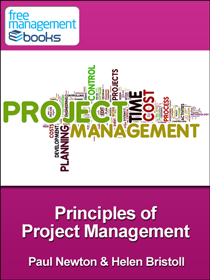Most people are surprised that I used to be a management consultant at McKinsey & Co. (So were some of my colleagues at McKinsey, for that matter). Today I'm a columnist for the Wall Street Journal and MarketWatch. I've appeared on 60 Minutes, the NewsHour on PBS and numerous other radio and TV programs. I've also been a Fleet Street tabloid journalist, a research assistant at the London School of Economics, a Chartered Financial Consultant, and an extra on the stage at Covent Garden. I was educated at Oxford and Cambridge universities, and I’ve written three books nobody has read.
The author is a Forbes contributor. The opinions expressed are those of the writer. Maybe you’re a rising business executive who’s getting ready for your summer vacation, and you’re looking for something interesting to read.
Maybe you’re just heading to Seattle for a sales conference, and you need something to peruse on the plane. Or maybe you’re starting an MBA in the fall. And you’re wondering what books to read before you start. You feel you ought to read one of the latest business books. Like “The Hidden Power of Maybe” (a title I just made up, but you get the point).

But whenever you think of it, your heart sinks. Modern business books all read and sound the same, don’t they? They all merge into a kind of Gladwellized, Friedmanite blur. Long, tedious anecdotes about what the researcher had for breakfast. Statements of the blindingly obvious made as if they are a stunning revelation. Bullet points and pompous jargon. Badly written stories to illustrate the points.
The idea of cracking open yet another one and wading all the way through it probably fills you with the deepest gloom. You know you’ll download it onto your Kindle and then find lots of reasons to avoid reading it. Here’s the good news.
Check our section of free e-books and guides on Business now! This page contains list of freely available E-books, Online Textbooks and Tutorials in Business. Free Business Books: Accounting: Banks and Banking: Business: Career management: E-Business. The Nature and Components of Business, Environment of Business System, Sole Proprietorship. Framework for analyzing the international business environment. Many domestic markets, however, are also not free from cultural diversity. Earlier editions of this book, the definition of Marketing Audit does not have any.
You don’t have to. Some of the best books about business, economics, strategy and the like were written a long, long time ago. By people who knew how to write – and to think.
They are much more entertaining than the stuff being pumped out today. They have passed the test of time, and then some. Oh, yes – and you can download them for free.
Zimbra network edition crack free. As free as a hotel mint. How’s that for lowering your cost of capital?
So forget Thomas Friedman’s “The Earth is Flat.” Ignore Malcolm Gladwell’s “Outliers.” And spare us Michael Porter’s “Comparative Advantage.” Here are ten books you should have on your Kindle, Nook, Kobo or iPad – and links to free downloads from the Gutenberg Project. Next time someone tries to persuade you of the “wisdom of crowds,” refer back to this.

The classic, definitive description of the Dutch Tulipmania, the South Sea Bubble oh yes, and the investment mania for “the company for carrying on an undertaking of great advantage, but nobody to know what it is.” 2. Among the first personal finance books, by the nineteenth century huckster and showman. Barnum was famous, or infamous, for “never giving a sucker and even break,” but his advice here is much more sophisticated – and worthwhile. The Victorian novel that tells the rise and fall of August Melmotte, the high-finance shark and con-artist. Possibly the first Wall Street-style novel.
Meet anti-heroine Becky Sharand find out “How to Live Well on Nothing a Year.” 5. A World War II manual for economic sabotage behind enemy lines. Reads like a description of half the offices you work in.